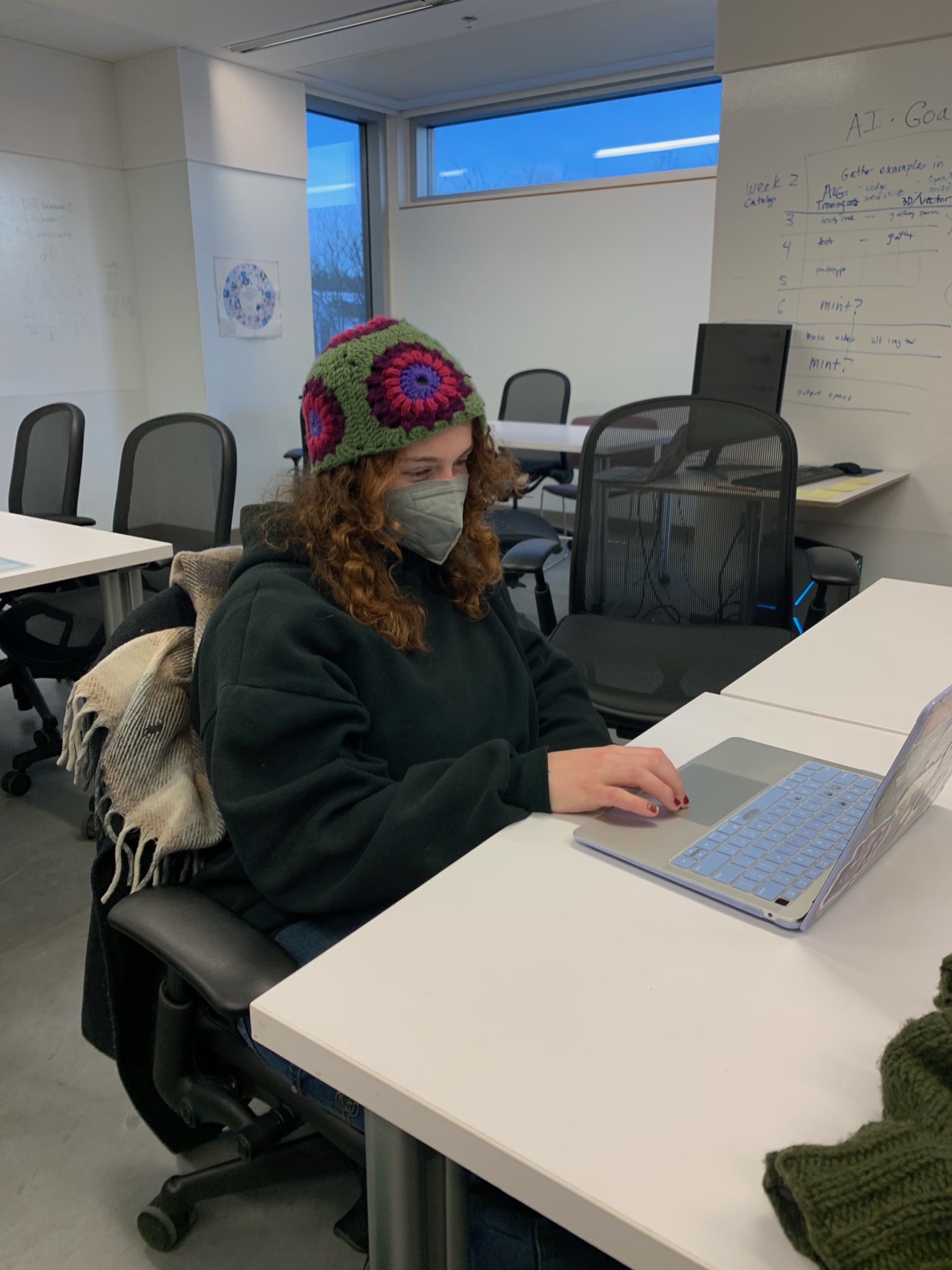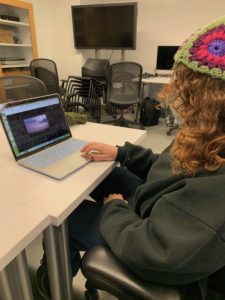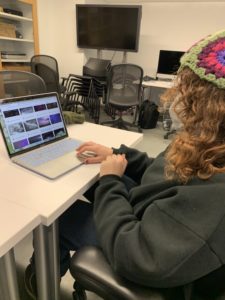
This winter, the GLITCHLab’s started meeting in person for weekly lab hours in which we collaborate on our most recent projects, swap ideas, and get to know each other better. As the designated documentarian of the group, I recently had the chance to interview Clara Pakman ’23 on her thoughts about our project and the work that she does for the team!
Can you tell us a little more about yourself and what you do in the lab?
I’m Clara, I’m a ’23 and I’m a Cognitive Science major and Digital Arts minor, but that may change because I like art, Cognitive Science is hard and…I don’t know (laughs). Right now what I’m doing in the lab is working on sorting the images for the AI. I’m doing sorting for the lightning images, because we have 3 sets of images, which is data for female sculptors, which I sorted last term, and now I’m sorting lightning, and then we’re also going to do fire, to see what the AI produces.
Can you explain a little bit more about what the AI does with the sorted images?
Yeah, so we try to determine which images fit our criteria and then we try to create a set of data that’s pretty much like blueprints for what image we want to come out of the other side, but the AI adds its own twist on it, so it kind of runs off of all these images and compiles its own interpretation of what the topic of the images is.
Was there anything new or surprising that you learned while doing the sorting for these images, or working in the lab?
Actually, it’s really cool doing the sorting because I find myself developing my own heuristics as if I were a robot for which images fit our criteria or not, and it becomes a very automatic process after a while. Especially as a Cognitive Science major, it’s cool to see how the brain can become more efficient at a task just by developing its own rules for processing data, I guess.
What do you envision for the future of this project?
I really, really want to keep or guard the focus on the feminist aims of this project, because I feel like that’s a really important statement to make, to show how most AI is just loaded with data that’s either male created or male centered in some way and thinking about the fact that an AI…an AI can really be the only intelligence in the world that’s trained on data that’s produced only by women, because if you just have a human growing up in the world, they’re going to get data made by all kinds of people, mostly men. So if you’re training an AI exclusively on female data, the product of that is going to be one of the only things in the world that’s made from, theoretically, a purely female perspective. So that would be success to me, to see what that looks like.




